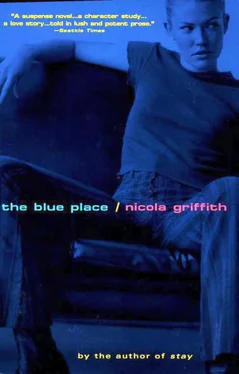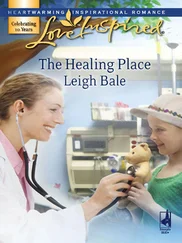Annie sat up when I came back with fresh coffee. “Where on earth did you find this?”
“I told the nurse that if she let me into the nurses’ break room to make some fresh, I’d not only make a generous donation to the hospital children’s fund, I’d bring her a cup, served any way she liked. You’ll be pleased to know that she takes cream and sugar. And she likes cookies.” I passed her the plate.
The coffee was long gone and we were playing backgammon when the surgeon returned. He was one of those men who needed to shave three times a day. He was wearing slacks and sports jacket. On his way home.
He was frowning when he came in, but smiled when we stood up.
“Let’s all sit down again, shall we?” Always we with doctors. “You’ll be pleased to know that the operation went smoothly and the patient is stable. But as you know, recovery can be a slow process.” He couldn’t remember her name.
“When can we see her?” Annie asked.
“She’s not conscious yet.”
“When?”
“In the morning? Yes, in the morning. A quick peep around ten o’clock. But very briefly. Yes, I think that would be best.” The man was so tired he was talking more to himself than to us. He started to get up.
“But someone will let us know how she’s doing?”
“The nurses’ station just down the hall will have all that information. Just ask. As I’ve said, the operation went very smoothly.”
Annie just nodded. He left. I got up. “I’m going to get some more coffee.”
I caught up with him at the nurses’ station, where he was commenting on some blunder on a TV hospital show the night before. They both laughed.
“Doctor.”
“Ah?”
“Another question, about Julia Lyons-Bennet, the woman you just gave a new liver. When will we know if she will reject the liver or not?”
“At least twelve hours. Tomorrow afternoon. Perhaps even later.” He just wanted to go home.
“It must have been a complicated operation.”
He made a vast effort and dredged up a smile. “Well, yes, she’d been shot and there were one or two things that we don’t normally encounter but, given that, everything went very well. Very smoothly. As I said.”
“But she’s still not conscious. What were the one or two things?”
He let his smile fade. “We had to resection her colon, and there are indications that her remaining kidney is under strain. But I can’t stress enough that she is currently stable and doing very well under the circumstances. It was a good organ match. We have high hopes.”
“How high?”
“High,” he said firmly. He was lying.
When I got back to the visitors’ suite with more coffee, Annie was crying. “She’s going to be all right, Aud. She’s going to be all right. I know it. Oh, please god she’s going to be all right.” She wiped at her eyes and sipped her coffee. I had put extra sugar in it. “He was very thoughtful, changing out of his bloody clothes before he came to see us, don’t you think?”
More likely he had needed the time to think of the phrases that would reassure without actually lying.
“Ah.” She put her cup down. “I think I can sleep now.”
I stayed awake, thinking. Julia, facing me that first time in the street in the rain. Julia, telling Dornan about penis piercing. Julia, in my arms at the fjord. Julia, Julia, Julia. So many mistakes.
After I had seen Julia, I took a cab back to the house. The flowers were all dead from lack of water and the house smelled of air-conditioning. The chair sat empty in the centre of my workroom. I called Benny. “I hope you don’t have any arrangements for lunch because I need some information, and I need it now. Anything you can find on the death of Michael Honeycutt in New York. The Bridgetown Grill at twelve.”
I showered, changed, unpacked, and dumped the dirty clothes on the floor by the washing machine. I knelt to sort them. Hjørdis had packed; Julia’s clothes were jumbled in with my own. I held a soft blue shirt to my cheek, remembered Julia’s sly smile as I had unbuttoned it at the seter one afternoon, remembered her laugh and wave as she drove off down the track, beautiful in her blue dress. I couldn’t bear to wash away her scent. I left the laundry on the floor.
I drove with the windows down, and the humid, sinewy heat fisted down my throat and fattened the ugly thing that pulsed under my sternum like a feeding leech.
The Bridgetown Grill was hotter still, flaring with the spit and sizzle of Jamaican cooking in the open kitchen that ran the length of the narrow gallery painted with palm trees and crowded by fast-talking dental hygienists whose glasses kept steaming up, and by white rastas whose dreads drabbled through their blackened fish and hot sauce unnoticed. Benny, skinny as a rail, was already eating, Adam’s apple bobbing up and down like the red bauble on a blood pressure monitor.
“Jamaican jerk chicken,” he said by way of greeting.
I beckoned the waiter and ordered the first thing I saw on the menu. “Tell me about Honeycutt.”
“Gee, and how are you, too, Torvingen? I gut NCIC in fifty minutes flat and get out here in fifteen more and all the thanks I get is—”
“Honeycutt.”
“Shot clean as a whistle in the back of the head in the men’s bathroom at Kennedy with a .38 at about three-thirty p.m. on May eighth. No one saw anything, no one heard anything. Best for last: he hadn’t even cleared customs and immigration.”
“Someone with access knew his schedule.” Someone with access to privileged information; who could get inside international airport security.
My food arrived just as Benny finished his. He looked from his empty plate to my full one. I pushed it at him. “Help yourself.”
“Not hungry?” He was already cutting the fish into bite-sized pieces, the better to shovel it down in record speed. “By the way, that coke from the Inman Park arson that you were interested in? It’s gone. Um, that’s good.”
I felt as though someone were squeezing my head. “When?”
“Not sure. Oh, this fish is delicious!”
“Then when did the department find out?”
“Well, they haven’t, yet. But I like to check on things that interest me. Sort of look at them, like trophies. Well, not look at them exactly, just sort of test them. Every now and again. So I went to check on the coke—and it’s gone. Well, not gone. Changed. The bags are the same, and the seals, but it’s not the same coke. It’s not coke at all, anymore.”
“But it was before?”
“It was what the lab report said: ninety-nine percent pure Colombian coke. It’s not now, though.”
“How do you know?”
“I just, well, you know, tested it.”
“Before and after?”
“I just took a bit. Really. Just a bit, to see. It’s not like it’s a habit or anything.”
“Never mind that. You’re sure, absolutely sure that what came in was pure, but that what is there now is not?”
“Yes.”
He’d never swear to it in court—why should he lose his job and risk prosecution?—but I didn’t need a court. The leech under my sternum swelled. I stood.
My phone rang. “Torvingen.”
“Aud?” It was Annie. “Aud, you’d better get here. She’s rejecting.”
Annie was waiting for me outside ICU. “The doctor says she isn’t rejecting. They say she has to have another operation. No one will explain.” Her once-round cheeks sagged, and she looked like a sad caricature of the Annie Miclasz I had met just a few weeks ago.
“Is she in the theatre now?”
“No, they’re about to prep her.”
“If she’s not rejecting, why are they going to operate?”
“The liver’s stopped working, and her kidney. And she’s got an infection. But I thought she was getting better. I don’t understand it. She woke up, and—”
Читать дальше












